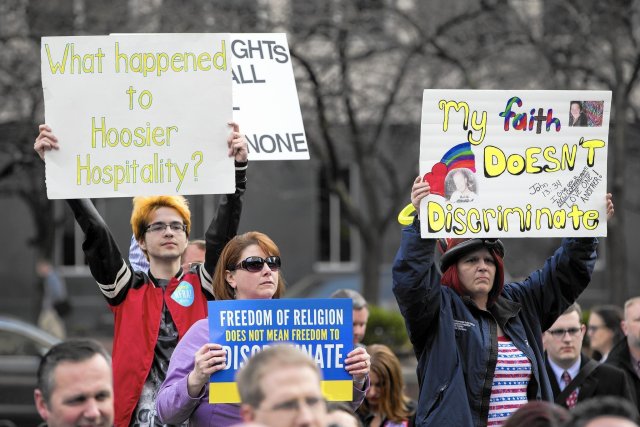
For most teenagers, starting high school triggers mixed emotions — nervousness, excitement, a sense of adventure. Adolescence is a critical period in everyone’s life.
This is especially true for LGBTI youth. In the process of coming to terms with our sexuality and gender identity, we must also navigate the hardships that come with existing in a society that overwhelmingly neither accepts nor accommodates us.
People who fall on the LGBTI spectrum have a far greater likelihood of developing mental illnesses, such as depression or anxiety, because of the prejudice, ignorance and discrimination so many of us face, often on a daily basis.
Studies have indicated that on the whole, younger generations are forging a shift in mindset. Youth have become more accepting and celebratory of difference and are speaking out against LGBTI discrimination, both within their peer groups and as a reaction to government legislation.
But schoolyards, classrooms and corridors continue to be hotbeds of bullying, from physical attacks to homophobic slurs whispered behind lockers. For LGBTI youth to feel safe and accepted in our identities, it is necessary for the government to take a stand in defending our rights.
In the past week, the Tasmanian government has been tackling contentious legislation proposed by religious conservatives, labelled the “Religious Freedom Bill”.
This bill — introduced by Will Hodgeman, Tasmania’s Liberal premier — would grant religious schools the right to refuse enrollment to any student whom it regards as “against its religious beliefs”. This is just an attempt to further allow homophobic bias into the legal system, and to let homophobes — under the guise of religious freedom — promote their bigotry.
Should this bill pass, schools would be permitted to refuse entry to LGBTI students, as well as to students raised by same-sex parents. This bill eerily echoes a recent incident in the US state of Indiana, which saw Governor Michael Pence attempt to introduce similar legislation — only to have it backfire on him through media criticism and even boycotting by big businesses.
LGBTI discrimination is illegal in Tasmania now. However, the island state is no stranger to the marginalisation and oppression of sexually-diverse and gender-nonconforming people. Male homosexuality was decriminalised in South Australia in 1975, in ACT in 1976, and in Victoria in 1981.
But Tasmania maintained its anti-LGBTI stance long after all other Australian states. It was only in 1994, in the landmark case Toonen v Australia, that Tasmania repealed the sodomy laws, which had previously made same-sex sexual relations a criminal offence. Following this, the state saw a dramatic shift in sentiment, seeing a succession of progressive reforms enacted. By 1997, extensive anti-LGBTI discrimination laws had been established.
In fact, Tasmania has taken great pains to separate itself from its anti-LGBTI history, and its anti-discrimination laws have received national attention and acclaim. This is why this proposed Religious Freedom Bill is so appalling.
Despite these strong anti-discrimination laws having been in place for almost two decades, there has been no credible example of churches or religiously-affiliated institutions having their “beliefs and tenets” violated. This makes Hodgeman’s and his supporters’ claims that the existing laws are a hindrance to religious freedom, completely and totally unsubstantiated.
Religion still plays a part in many people’s lives and still holds considerable sway over political and legal proceedings, even in the most secular of countries. Should this bill pass, LGBTI youth would face even more marginalisation and oppression and, worse still, this discrimination would essentially be given — both implicitly and explicitly — the green light on behalf of the government.
There is nothing wrong with faith, per se, and religious freedom of expression. However, when it impedes, as it so often does, on the rights and safety of others, it should become a topic of national concern and fury. This is not evident in current events. In fact, the proposed legislation indicates more clearly than ever the need to remove religiously conservative sentiment from our governments, and to take an even more vigorous approach in the fight for LGBTI equality and liberation.
Like the article? Subscribe to Green Left now! You can also like us on Facebook and follow us on Twitter.